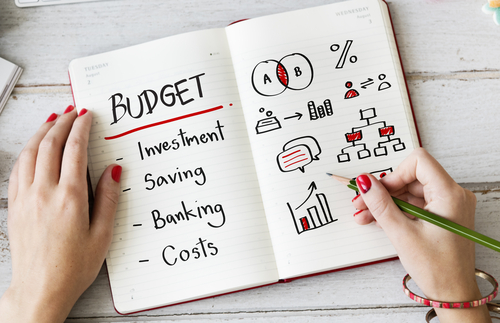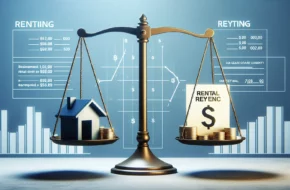Are aware that around 38 million American households live paycheck to paycheck? And no, these are not low-income families. Families even with salaries above $100K per year are caught in this vicious lifecycle. The moment the paycheck arrives, most of it goes in settling the bills and couple of days of respite followed by a zero bank balance.
This is not impressive and it does help that electrical prices rose higher in the years from 2009 to 2016 which is another reason household income growth did not rise at all in those same years as well. Hopefully that changes in the next couple of years. This will mean less people will be living paycheck to paycheck.
So why even are wealthy people failing to save money or take control of their finances? Irrespective of the income bracket that you are in, there is always a way to save some portion of your income for investment and savings, you just need to start somewhere.
Prepare a Budget
The first and most vital aspect that needs to be done to improve your finances is to understand how you are spending your money. Start whenever you want, but religiously track every penny you spend for a month. Ideally, it should be the start of the month when all your bills are due.
This will help you in covering the entire month and track your expenses accurately. If you do not have time to do expense tracking at the micro level, smartphone apps can make this job easier. Remember, the first thing to do is to understand the root cause of the problem, which in this case are unchecked expenditures.
Find Expenses that You can Cut
Tracking your expenses will enable you to identify the expenses that you can do away with. For example, the expensive cable plan you have subscribed to can be trimmed down to a bare minimum (do you really Direct TV for instance?). Switch to online streaming service providers. Scourge the Internet for discount coupons while buying anything, you may be surprised how much money you can save this way.
Check your credit card bill for subscriptions and memberships you no longer use or do without (how often do you attend that gym; can you not exercise in your home or run around the block a few times?). There is no need to walk into Starbucks every day for that caffeine dose either. Stop or cut down going to fancy restaurants or restaurants at all. You can buy TGI Friday’s frozen food at supermarkets, for example. You would be surprised how making these small changes to your spending habits can help you save money.
Do you really need life insurance? You know that is one of the biggest scams in America. Well, unless you are afraid of dying broke and we here are trying to get you in a better financial place so that does not happen.
Moreover, the savings then can be channelized towards investments or savings. That is making those spending decisions compound for you. If you are a smoker, cut down on those cancer sticks (that is what they are!). Not only you will be healthier, but also save hundreds of dollars a year.
Do Side Gigs
The Internet has made it easier to find side gigs that pay well or pay something. There are numerous dedicated platforms out there which you can use to find gigs such a web design, online accounting work, virtual assisting, consulting, research work, and so on. If you are not proficient in any of these, try something simpler like dog walking. Your home is full of things you don’t need or do not use any longer. Sell these on Craigslist or eBay. Extra cash you earn this way can be utilized in a productive way.
Consolidate Debt
If your debts are unmanageable and that is one of the primary reasons you live paycheck to paycheck, it’s time to think about debt consolidation.
In debt consolidation, all your debts are paid off by a debt consolidation firm. Then you have a single payment to make towards your debt that is optimized based on your financial profile. Though it may be an extreme measure, nevertheless it’s a percipient and prudent strategy to get out of debt trap and start fresh.
Create an Emergency Fund
Life is full of uncertainties and you should be prepared for anything that life throws yours way. Research indicates that you need at least six months of expenditures saved up just in case the you know what hits the fan. The emergency fund should be sufficient enough cover all your bills for six months should you be out of work or in bed due to an accident or an illness.
The emergency fund should be impenetrable so do not dip your hands into it (have more discipline than most politicians!). If your emergency fund is piled up high, simply channelize it towards other purposes that are vital, such as a nice mutual fund. And no, going out to Pizza Hut is not wise. Do not sink back into bad habits!




